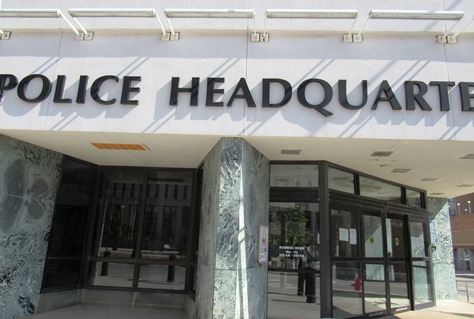
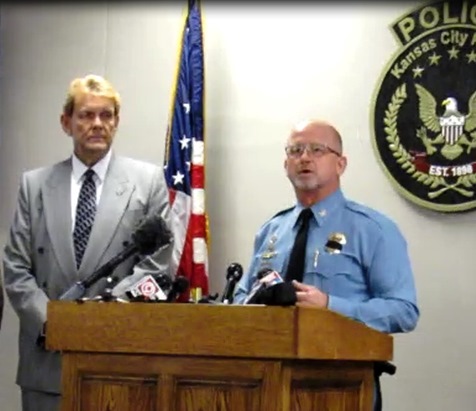
by Mary Rupert
More than 200 arrests were made by a police and U.S. marshals operation from March 1 through April 30 in Kansas City, Kansas, according to authorities.
Operation Lateral Storm, funded by a federal grant, targeted violent crimes in specific neighborhoods in Kansas City, Kansas, said U.S. Marshal Ron Miller at a news conference today at the Kansas City, Kansas, Police Headquarters.
Kansas City, Kansas, Police Chief Terry Zeigler said crime is down to a 30-year low in some categories, including homicides, because of the efforts of residents and of operations like this.
“I guess the message to criminals is get out of our city,” Chief Zeigler said. “Don’t care where you go, don’t come to KCK.”
Zeigler said they will work with federal partners, continue to be vigilant and try to get federal prosecution so that criminals stay in prison longer.
The areas that were targeted by Operation Lateral Storm included selected neighborhoods of Kansas City, Kansas. Chief Zeigler said the primary area was 7th to 18th streets, Pacific to Grandview. In addition, there were two I.C.O.N. (Impacting Crime in Our Neighborhoods) locations in this operation, he said. The current I.C.O.N. locations, since March 4, are 10th to 13th streets from Quindaro to Greeley, and 68th to 75th streets from Kansas Avenue to K-32.
Miller, a former Kansas City, Kansas, police chief who was with the KCK Police Department for more than 30 years, said a total of 583 warrants were cleared in this operation. The operation is part of the national Operation Triple Beam that assists with local crime reduction, he said.

The operation is sending a message that gangs don’t own the neighborhoods, the citizens own the neighborhoods, Miller said.
The drug problem and drive-by shootings here are fed by gang activity, Zeigler said.
The Operation Lateral Storm targeted hot spots of crime identified by data, according to Marshal Miller. Law enforcement then added information about the location of persons who had active warrants at the state and local level, and targeted those people, he said.
“This is not something that just happens in Kansas,” Miller said. “This is something that the Marshals Service does nationwide.”
About 5 percent of the people commit 60 to 80 percent of the crime, Miller said, so if those 5 percent are targeted who already have warrants, then crime goes down.
He said there are plans to continue these operations, including in Topeka and Wichita. Everything is done in collaboration with state and local law enforcement agencies, he said, and the success of these operations has led to the availability of more federal funding for similar operations in the future.
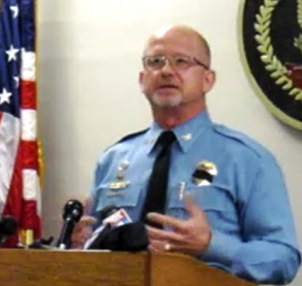
“Crime in Kansas City, Kansas, continues to go down,” Chief Zeigler said. “We’re at a 30-year low for homicides comparing this time this year to the previous years.”
One of the reasons crime continues to drop in this community is participation of citizens who call in and who participate in neighborhood watch groups, he said.
Another significant reason for the drop is the cooperation among federal, state and local law enforcement agencies, he said. The U.S. Marshals Service put this operation together, with participation from many other agencies, he said.
It was the type of operation that has a long-term effect on crime, he said.
“We’re going after the baddest of the bad and we’re getting them incarcerated for longer periods of time,” Zeigler said. “I’m confident by the end of this year, 2019, we’re going to see another decrease in violent crime.”
The police department’s emphasis during the past few years has been on drive-by shootings, he said. In 2017, there were 345 drive-by shootings, last year because of partnerships the drive-by shootings dropped to 284.
This Operation Lateral Storm initiative concentrated on gangs, and getting members of gangs arrested, he said.
Kansas City, Kansas, has received a Bureau of Justice assistance grant of about $700,000 earlier this year, Zeigler said. The department is focusing on decreasing violent crime with its I.C.O.N. program targeting smaller areas.
In Operation Lateral Storm, the KCK police received about $60,000 to pay for overtime, according to officials. About 25 KCK officers were assigned to the operation and many became special deputy U.S. marshals for this operation, allowing them to cross the state line to pursue someone they may have been tracking, Miller said.
Miller said funding for the federal grants to run these operations originated with the Commerce, Justice and Science Subcommittee under the Appropriations Committee at the federal level, and Sen. Jerry Moran, R-Kansas, is the chairman of the subcommittee. When the federal operations are successful, they may be able to receive funding for similar operations in other communities, he added.
According to information from the police department, total violent crime in these selected neighborhoods for Operation Lateral Storm was down from 108 in 2017 to 98 in 2018 to 69 in 2019. Total property crimes, including burglary and theft, were down from 352 in 2017 to 316 in 2018 and 200 in 2019.
The homicide rate is down in these neighborhoods, from five in 2017 to four in 2018 and one in 2019, according to these statistics. Chief Zeigler said tips have increased from the community, with a reward increase to $5,000 for tips that result in solving homicides.
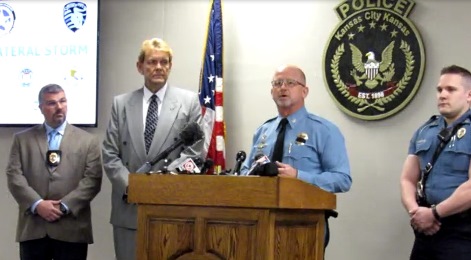
The Kansas City, Kansas, Police Department released several photos that they made of Operation Lateral Storm, including:
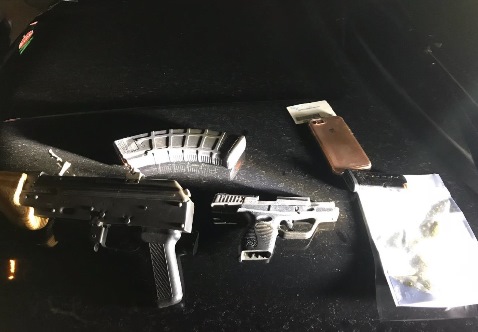
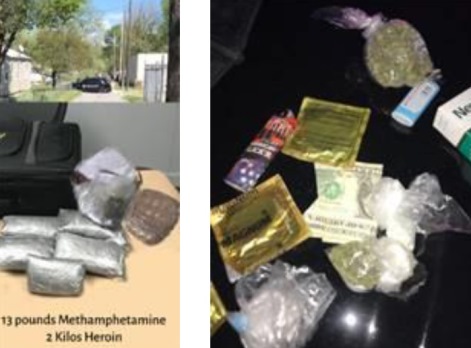
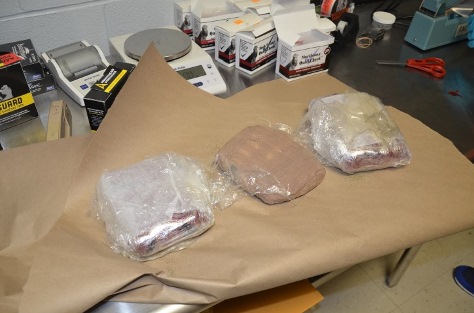
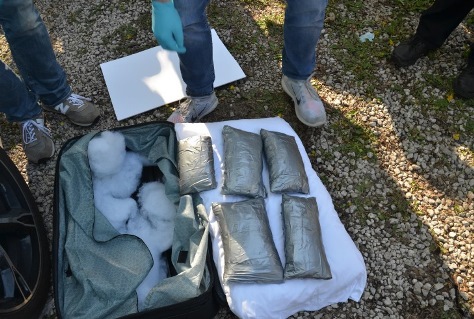
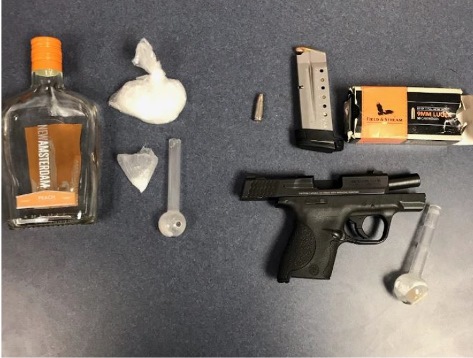

I am so pleased with this outcome. I live in Ks.Cy., Ks. There had been so been so much crime, for years, the difference is just amazing! Thank you for all your hard work and help. The Lord be with our police always.